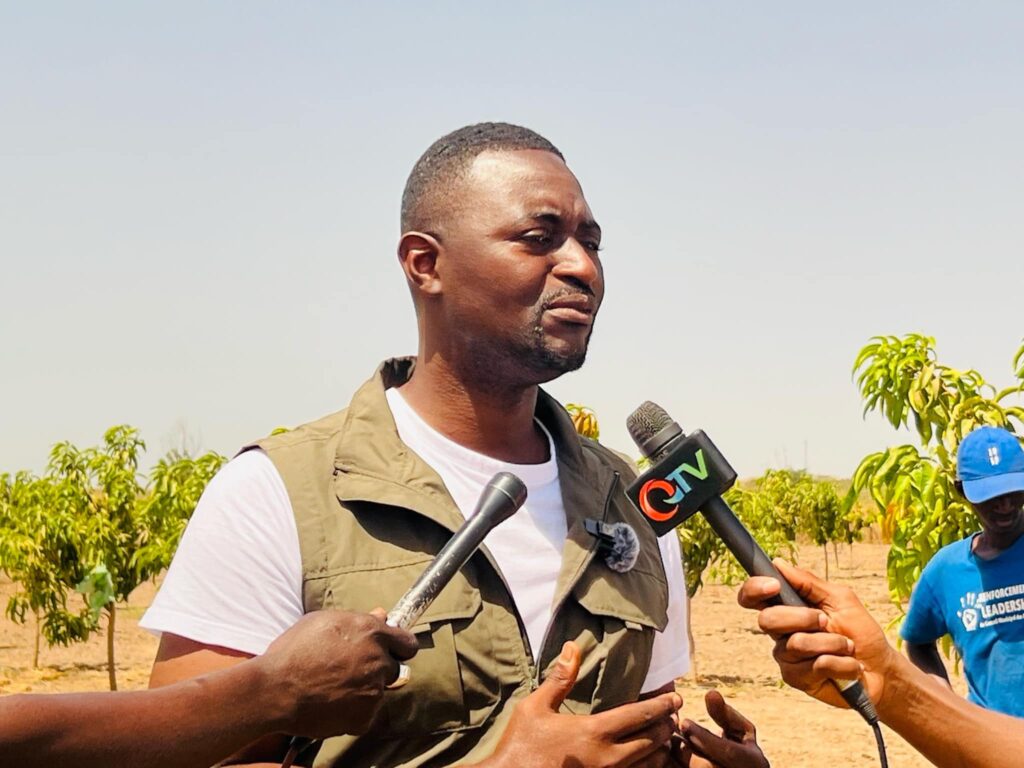Pina Gambia Embarks on Pineapple Cultivation in Bassori

Amadou Chico Cissoko, Founder of Pina Gambia
By Fatou Sillah
On a sunlit morning in Bassori, a farming community in The Gambia’s West Coast Region, Amadou Chico Cissoko knelt in the soil, placing the first batch of Gambian Princess Pineapples into the ground. As the founder of Pina Gambia, an initiative dedicated to introducing and expanding pineapple cultivation in the country, Cissoko hopes this symbolic planting will mark the beginning of a thriving industry.
The initiative aims to demonstrate the feasibility of large-scale pineapple farming in The Gambia, while also promoting sustainable agriculture and economic development. By equipping local farmers with the necessary knowledge, resources, and technical support, Pina Gambia envisions a future in which the country becomes not just a consumer but a competitive producer of high-quality pineapples.
In an interview, Cissoko highlighted the economic potential of pineapple cultivation, emphasizing its role in boosting food security and reducing dependency on imports.
“Imagine now, if someone produces it at scale, a thousand, ten thousand, fifty thousand, hundred thousand plants, and then you can harvest them, not only do you get a better quality fruit, but you eliminate the cost of transport, completely. So the price of the good could be much cheaper here, the farmers would make more profit, because their prices would be more competitive than the one that is imported,” he explained.
Cissoko believes that investing in tropical fruit cultivation could transform the agricultural landscape in The Gambia, creating opportunities for young entrepreneurs and attracting foreign direct investment.
“My mission here is very clear; it is to help the Gambia and Gambian farmers. Gambian investors in agriculture, make the Gambia a producer and exporter of tropical fruits, and pineapple in particular,” he added.
Pina Gambia’s long-term vision, Cissoko enthused, is to position The Gambia as a major supplier of premium pineapples to international markets. The initiative is already training farmers in small-, medium-, and large-scale production, with hopes of developing an export pipeline to the United Kingdom, Senegal, and beyond within the next five years.
“We are training more people to produce in small-scale, in mid-scale, in large-scale, so that over the next five years, there’s enough production locally for us to be able to export also to the UK, to Senegal, and to other countries” he said.
Beyond expanding production, the initiative also focuses on educating farmers about the best agricultural practices, from planting and irrigation to harvesting and packaging. The goal, Cissoko said, is to ensure high-quality production standards that can meet both local and international demand.
For many farmers in The Gambia, pineapple cultivation could offer a profitable and sustainable alternative, diversifying agricultural income streams and bolstering the country’s economy. As Cissoko placed the final seedling into the soil, he envisioned a future where Gambian pineapples were not just a novelty—but a national success story.

